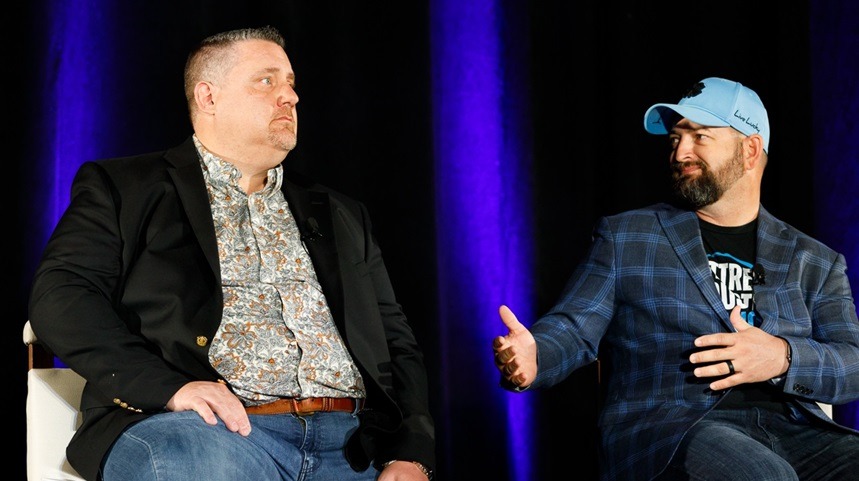HILTON HEAD, S.C. — In coming years, consumers will increasingly turn to some form of artificial intelligence to find “the answer” to questions related to a potential bedding or home furnishings purchase. And retailers that are not active in the space and understand how to use the technology could find themselves excluded from consumers’ consideration set.
That was the admonition of Jeff Giagnocavo, co-owner of Gardner’s Mattress and More in Lancaster, Pa., speaking at Furniture Today’s recent Bedding Conference here.
Giagnocavo noted that the days when consumers use Google to get what he called “a buffet of answers” will increasingly be replaced by a desire to seek the best answer, and for that, AI will become “the answer engine.”
Giagnocavo and fellow retailer and panelist Steve Houk, owner of Boise Mattress in Boise, Idaho, have actively embraced AI in their respective stores, with each finding different ways to employ the technology.
Houk, a self-described “software nerd,” said he’s found success using AI as an ad optimization tool, allowing him to A/B test messaging to maximize the efficiency of the Google key words that he spends against.
Houk also pointed to a software he uses to handle consumer calls, called Air.ai that can handle detailed conversations with consumers and can be programmed with myriad frequently asked questions or customer responses to sales associate questions, which in turn helps improve the likelihood of closing a sale.
“The more you use it, the better it will get at responding to the customer,” said Houk. “And it gives consistent answers, in some cases, better than employees will.”
He noted that despite consistent training, RSA responses may still be inconsistent across the team. AI can alleviate that.
Giagnocavo has taken a somewhat different approach in his use of AI, employing it to develop sleep guides and sleep quizzes to help potential purchasers find the product that best aligns with their mattress needs. He noted that one of the keys in that effort is ensuring that the AI platform being used is accessing the appropriate content, which ideally comes from the retailer itself.
He noted that early in his effort to cast a broad net for people suffering from a bad night’s sleep he developed an AI-driven sleep hacks quiz. The problem, Giagnocavo noted, was that, “it had no content to pull from and was pulling from Amazon, Target and Costco,” delivering information that had little relevance to his customers.
The learning from that, one in which Houk concurred, is that the ability to create effective prompts to direct AI is critical to success. “The mistake people make is thinking that AI is ‘the’ solution,” said Houk. “It is just one solution. The key is prompts. There will be entire college courses taught around AI prompts.”
The other key learning, according to Giagnocavo, is for retailers to develop their own content from which AI can pull key messaging. He used the term “digital sovereignty” to describe retailers’ control over their own content at a time when AI is widely scouring the Internet and pulling answers from myriad sources, often without regard to potential copyright issues.
“AI has to get an answer,” Giagnocavo said. “It may not be an accurate one.”
His solution? “Build your house of content.”
